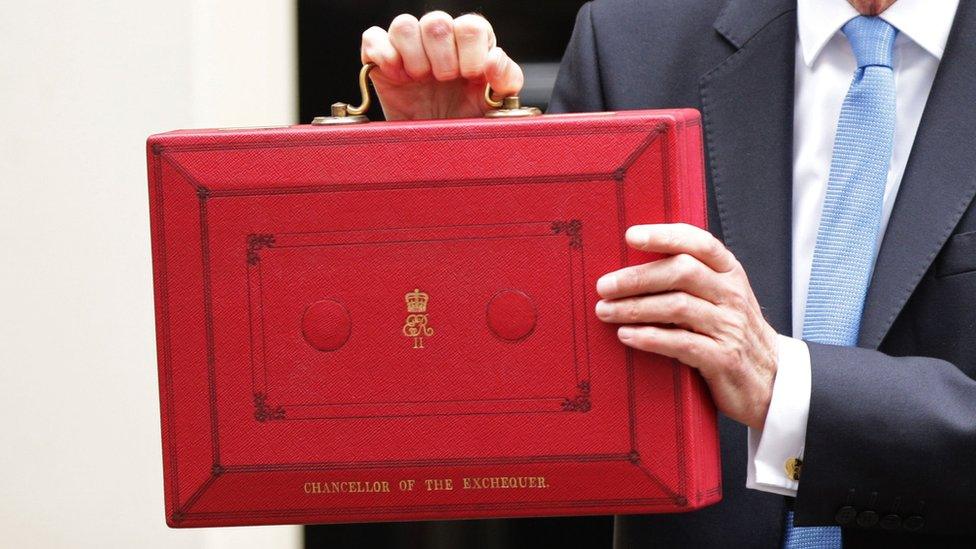Budget 2017: The endless living squeeze
- Published
- comments

What is the point of capitalism?
That might seem like a pretty big question, but one answer could be "to provide people the opportunity through work to become richer".
What, though, if the economy fails in that endeavour?
If the system leaves you - despite all your efforts - worse off in December than you were the previous January?
Or worse off now than you were a decade ago?
It was Lord Adair Turner, the former head of the Low Pay Commission, who put it succinctly.
"The UK over the last 10 years has created a lot of jobs, but today real wages are below where they were in 2007," he told me earlier this year.
"That is not the capitalist system delivering its promise that over a decade or so it will raise all boats, and it is a very fundamental issue."
Fundamental indeed.
Yesterday the Office for Budget Responsibility (OBR) announced an aggressive downgrade of both its growth and productivity forecasts.
Those big, macro-economic announcements have a significant effect on all of us as well as on the state of the public finances.
It means the economy is forecast to be weaker at producing wealth for every hour that we work.
Which makes the chances of a pay rise for everyone recede.

Today, two pieces of chunky analysis of the OBR's judgements reveal why those downgrades are so important.
The social justice think tank, the Resolution Foundation, said that "lower productivity feeds directly through to pay, which is now forecast to be £1,000 a year lower on average than the OBR thought back in March".
The Foundation says that the fall in real incomes people are experiencing could now become the longest since records began.
And that wages will not recover to their pre-financial crisis levels until 2025 - that's 17 years during which people have been experiencing an incomes squeeze.
The tax and economy think tank, the Institute for Fiscal Studies, agrees.
"Real earnings are falling this year as inflation has risen to 3%," Paul Johnson, the Institute's director, said.
"The nascent recovery in earnings, which were growing through 2014 to the first half of 2016, has been choked off.
"That they even might still be below their 2008 level in 2022 as the OBR forecasts is truly astonishing. Let's hope this forecast turns out to be too pessimistic."
Government ministers will be similarly keeping their fingers crossed.
And hoping that with strong employment levels and plans to boost investment in the type of infrastructure that boosts productivity - transport, scientific and technology research - the real incomes squeeze can be alleviated.
Because if a system does not deliver increasing wealth - even if it is a modest increase - then people, quite naturally, begin to wonder what is the point.
- Published22 November 2017

- Published22 November 2017
